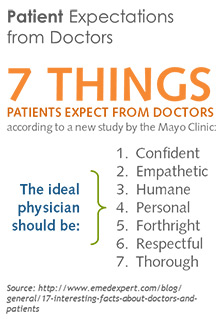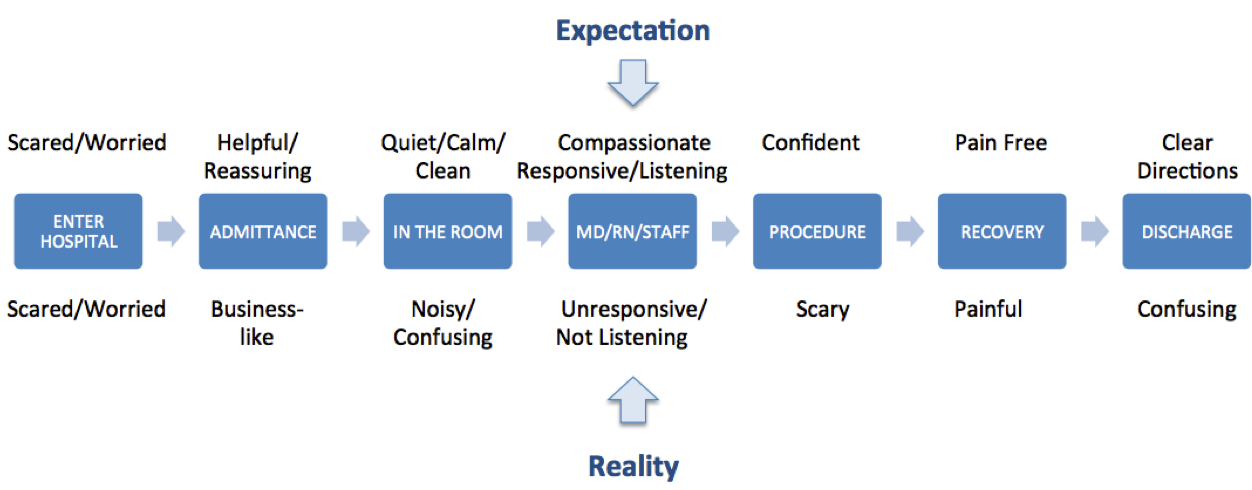I’ve always found the psychology of patients to be fascinating. Patients who present to emergency rooms most often are consumed with the fear of the unknown and are ultimately focused on the question of “What’s wrong with me, doc?” Of course in the emergency room (ER), we are less focused on what you have and more focused on the life-threatening conditions that you could have. It always seems to be very unsatisfying for patients when a firm diagnosis isn’t made in the ER, which is very ironic because in many cases, you really don’t want to have what we’re looking to find. The next time your ER physician tells you the tests were normal, and you’ll require more testing by your family physician, take that information and run with it. It usually means that you’ve escaped the clutches of the most immediately life-threatening considerations. Remember, we don’t always give good news.
Still, patients fear the unknown. After all, physicians are sometimes wrong. In other instances, your visit to the ER is just a “snapshot” of your condition. In two days you could look completely different. That nonspecific-appearing rash could bloom into full form. That persistent cold or other viral illness could have sufficiently lowered your immunity such that a bacterial infection could have simultaneously developed. It is very unsatisfying when your physician suggests that you’re ok, when you “know” you’re not. After all, that’s why you came to the ER! Don’t just stand there, doc: Do Something!
Of course, the fear hits the highest levels when it involves children. A parent’s intuition about these things is not to be disregarded. For some, “normal” is usually not good enough (meaning it’s not an acceptable answer).
So my question to you is “What are your expectations?” You would do well to take a deep breath, and think about that before you come in to be seen. In my experience, your concerns usually are among the following types.
- Is there a clear but unknown illness or injury, and your concern is making sure the doctor gets the treatment right?
- Do you “already know what’s going on,” and just want the doctor to do what will make you feel better?
- Are you coming in “just to be sure?”
- Do you not have a clue what’s going on but just know “something is wrong?”
Each of the above considerations represent an attitude you’re bringing to the table. If you take the time to identify your expectations, you’ll do a better job in convincing your physician that your desired outcome represents the best course of action. Much has been made of physicians who don’t listen. Resolve to do a better job of making your physician hear you. Also do a better job of asking questions, and take the time to hear what is being said back to you.
The discharge interaction is incredibly important. If you’re not listening or understanding your instructions, you’re not only going to be lost and frustrated, but you’re going to be at risk for worsening of your condition. In many instances, even if nothing was discovered, something could be wrong. In other instances your instructions have to do with handling your surrounding environment. If you’re tuned out because you didn’t get your preferred course of treatment, you will less well equipped to handle the conditions that could produce further injury or illness.
Understanding your own psychology going into a physician interaction is a big part of your health. Try it, communicate it and get better soon. This consideration is actually a big part of personal healthcare consulting. Your Sterling Medical Advice expert consultants work to help you flush out expectations and outcomes. Whether or not you do it with us, learn to make this a part of your self-assessment.
Thanks for liking and following Straight, No Chaser! This public service provides a sample of what 844-SMA-TALK and http://www.SterlingMedicalAdvice.com(SMA) offers. Please share our page with your friends on WordPress. We are also on Facebook at SterlingMedicalAdvice.com and Twitter at @asksterlingmd.





